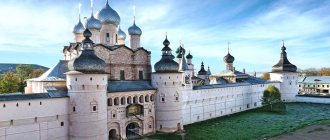Home / Civil law / Help for large families in 2021 in the Leningrad Region
Indicators used to determine need
: average income, average per capita cash income of a family member (average cash income of a citizen living alone).
For 2019, to determine need for the provision of social support, the average income in the Leningrad region is 32,840
rubles.
Children with illnesses and disabled people
- Monthly allowance for unemployed citizens and those receiving vocational training or additional vocational education through the employment service - 12 067
; - Monthly allowance for disabled family members of an unemployed citizen receiving vocational training or additional vocational education through the employment service (children under the age of 18; persons under the age of 23 and full-time students) – 10 718
; - A one-time cash payment for unemployed citizens to receive vocational training and additional vocational education – 150 000
; - In order to carry out individual entrepreneurial activities at a time for those opening their own business for the first time 300 000
; - To develop an existing individual entrepreneurial activity or to restore activity in the event of an emergency - 100 000
; - For the purpose of running a personal subsidiary plot - a lump sum of 300,000
rubles; - In order to implement other measures aimed at overcoming a citizen’s difficult life situation, in the form of a monthly social benefit of 12,067
or a one-time cash payment in the amount of
200,000
rubles.
- A one-time cash payment to a woman awarded the honorary badge “Glory to the Mother” - 100 000
Regional maternity capital in the Leningrad region
From 2021 this payment has been cancelled. The right to receive it remains with the following citizens:
- for whom payment was scheduled before 01/01/2020;
- those on parental leave born no later than December 31, 2019 (we are talking about relatives actually caring for the child and military women).
- payment from the regional budget - 874 rubles monthly (if the profit exceeds 70% of the average income in the region, then the payment is not provided);
- payment of part of the cost of utilities - approximately 800 rubles;
- social subscription for travel on public transport – 400 rubles;
- preferential tariff for the sale of tickets for commuter trains – 11% of the fare;
- free production of dentures;
- subsidy for the purchase of medicines;
- additional leave of 35 days at the request of the veteran if he continues to work;
- free trip to a health resort, but only with a doctor’s certificate;
- tax benefits - for property, land and transport (each case requires individual consideration).
Conditions for providing free plots
- residents of the Leningrad region, permanently residing in the region for at least 5 years preceding the day of filing an application for free provision of land, registered with local administrations as those in need of residential premises (Article 51 of the Housing Code of the Russian Federation)
- large families included in the register of large families of the Leningrad Region - provided that the parents (one of the parents) have lived in the Leningrad Region for at least 5 years preceding the day of filing the application for free provision of land
- large families included in the register of large families of the Leningrad Region and who submitted an application for the provision of a land plot before 04/11/2021 (Article 2 of the Law of the Leningrad Region No. 8-oz dated 02/19/2021) - details can be found here
- young professionals under the age of 35:
- having completed higher (secondary, primary) vocational education
- final year students of an educational institution of higher (secondary, primary) vocational education
- working, in accordance with the qualifications obtained, under an open-ended employment contract or under an employment contract concluded for a period of at least 5 years, at enterprises, institutions, organizations, individual entrepreneurs operating in the Leningrad region, but subject to registration as needy in residential premises established by Article 51 of the Housing Code of the Russian Federation
- family members of deceased Heroes of the Russian Federation, who were awarded the title of Hero of the Russian Federation posthumously and who, at the time of death, had been permanently residing in the territory of the Leningrad Region for at least 5 years preceding the day of filing the application for free provision of land:
- widow (widower) of a deceased Hero of the Russian Federation, who did not remarry
- children under 18 years of age
- children over 18 years of age who became disabled before they reached the age of 18 years
- parents of the deceased Hero of the Russian Federation - in the absence or refusal of the persons specified in paragraphs 1-3
- veterans of military operations (in accordance with the Federal Law “On Veterans” No. 40-FZ dated January 1, 2021) - subject to permanent residence in the Leningrad Region for at least 5 years preceding the day of filing an application for free provision of land
- disabled people and families that include disabled people who are enrolled in local government bodies of the Leningrad region as those in need of residential premises on the grounds provided for in Article 51 of the Housing Code of the Russian Federation
We recommend reading: Indication of Disability Pension 2021
Who can get a free plot?
In the event of the death of a citizen registered as a person entitled to the provision of a land plot for free, his spouse has the right to submit an application to register him (her) while maintaining the priority previously determined on the basis of the application of the deceased citizen.
Thus, the authority to transfer land free of charge to large families has been transferred to regional authorities, which act within the framework of the previously mentioned recommendations and regulations adopted at the subject level.
Support for labor veterans
- monthly payment upon the birth of the 3rd child (and subsequent ones) - 10 thousand rubles (provided up to 3 years);
- payment for the purchase of children's goods and food - 30 thousand rubles;
- monthly allowance for children's assortment and products - 800 rubles (up to 3 years), 600 rubles (from 3 to 16 years);
- compensation for part of the costs of kindergarten - 25% for child care for one child, 55% for the second child and 75% of the fee for the 3rd child (and each subsequent one);
- partial compensation for trips to camps and children's sanatoriums;
- compensation for utility costs (for each child and one parent) – 676 rubles;
- funds for the purchase of uniforms and writing materials - 4 thousand rubles;
- free travel to and from the place of study for schoolchildren;
- free supply of medicines and medical products to children under 6 years of age;
- admission to kindergartens without a queue;
- free meals in schools;
- regional maternity capital for 3 children born after July 1, 2011 – 122 thousand rubles;
- financial assistance for the birth of three or more children at the same time - 100 thousand rubles for each child, plus a subsidy for the purchase of housing in the amount of 3 million rubles;
- providing a vehicle for families raising 7 or more children (minors), while both parents must live in the Leningrad Region for at least 5 years;
- monthly compensation for the cost of housing used under a rental agreement (private housing stock) or sublease of an apartment from municipal and state funds (family members must be recognized as in need of residential premises);
- preferential taxation for land owners - 50% discount, complete exemption from taxes, reduced rates (the type of assistance depends on the situation);
- cancellation of transport tax for 1 object.
Help for families: large families, low-income families
- abolition of property tax;
- deduction of the cadastral value of 6 acres when calculating land tax;
- 100% discount when paying land tax in St. Petersburg if you own a territory up to 25 square meters in size. m;
- 20% discount when paying transport tax.
women who gave birth (adopted) a fourth child or subsequent children in the period from January 1, 2012 to December 31, 2021, if they had not previously exercised the right to an additional measure of social support;
You might be interested ==> Duration of stay in Russia for Armenian citizens
In accordance with the Law of St. Petersburg dated April 06, 2011 No. 176-49 On the honorary title of St. Petersburg For merits in raising children and the awards of St. Petersburg For merits in raising children, the honorary title of St. Petersburg For merits in raising children is awarded for worthy upbringing five or more children.
Regulatory legal acts for large families in St. Petersburg and Leningrad Region.
In most cases, to receive regional payments, registration is required for several years. If parents have only recently moved to the northern capital and have not yet managed to register permanently, they will not be able to count on the benefits available to residents of St. Petersburg.
The Ministry of Labor announced that starting next year, families with children from 3 to 7 years old will be able to receive increased benefits. True, this will only affect low-income groups of the population. Parents' income must be below the subsistence level.
Federal support for families in St. Petersburg: payments
Preferences for mandatory payments to the budget are indicated in a certain amount expressed in rubles. However, this does not mean that the taxpayer will receive this money into his account.
What is a tax deduction
Mandatory conditions for the appointment of social support measures for large families are the Russian citizenship of at least one parent, as well as an established place of residence or stay in St. Petersburg. Without documentary confirmation of these facts, the assignment of benefits and benefits to the family may be denied.
Social support measures provided by the Pension Fund of the Russian Federation cover categories of citizens belonging to “federal” beneficiaries, to whom the Pension Fund assigns and pays monthly cash payments (MCP). For certain categories of citizens, the Pension Fund of the Russian Federation establishes additional monthly financial support for pensions assigned in accordance with Russian legislation.
- families with children (Article 1.6, Chapter 2);
- large families and large foster families (Chapter 3);
- students in educational organizations of the Leningrad region (Chapter 4);
- disabled people (chapter 5);
- persons suffering from diseases and other persons in need of medication (Chapter 6);
- specialists living and working in rural areas and urban-type settlements of the Leningrad region, and persons retired from specialist positions (Chapter 7);
- labor veterans (Article 8.1);
- veterans of military service (Article 8.2);
- labor veterans of the Leningrad region (Article 8.3);
- home front workers (Article 8.4);
- victims of political repression (Chapter 9);
- pensioners (Chapter 10);
- other categories of citizens (Chapter 11): social benefits and reimbursement of the cost of services to a specialized funeral service for the burial of deceased citizens of certain categories (Article 11.1);
- preferential travel on road transport on adjacent interregional, intermunicipal and municipal regular transport routes at regulated tariffs on the basis of a single social travel ticket (Article 11.1);
- preferential travel on road transport on adjacent interregional, intermunicipal and municipal regular transport routes at regulated tariffs on the basis of a single social travel ticket (Article 11.2);
- preferential travel on suburban railway transport (Article 11.3);
- social support for war children (Article 11.4);
- monthly cash payment to combat disabled people and family members of a deceased combat disabled person (Article 11.5);
- a lump sum payment for the anniversary of marriage to married couples who have been married for 50, 60, 70 and 75 years (Article 11.6);
- a one-time cash payment for the burial of a deceased victim of political repression (Article 11.7).
Social support measures provided by the Pension Fund of the Russian Federation
Measures of social support for older citizens established by Federal Law of December 28, 2013 N 442-FZ “On the basics of social services for citizens in the Russian Federation”, Decree of the President of the Russian Federation of December 26, 2006 N 1455 “On compensation payments to caregivers for disabled citizens”, Decree of the Government of the Russian Federation dated June 4, 2007 N 343 “On the implementation of monthly compensation payments to non-working able-bodied persons caring for a disabled person of group I (with the exception of disabled people from childhood of group I), as well as for the elderly in need of confinement of a medical institution in permanent outside care or who have reached the age of 80 years,” are also provided by the Pension Fund of the Russian Federation.
May 11, 2021 vektorurist 159
Share this post
- Related Posts
- Minimum pension in st pete in 2021
- Built-in furniture can be bailiffs
- Medical benefits for labor veterans in St. Petersburg
- How to sell shares in Moscow
What will change for families with children from 2021?
As part of increasing benefits for low-income parents with children aged 3 to 7 years, the government will spend 100 billion rubles from the state budget next year. This decision was dictated by a decree of Vladimir Putin, who had previously given instructions to work out additional measures to help the poor, where there are small children.
What benefits do large families have?
Starting this year, families with many children can also apply for a payment for a child from 3 to 7 years old. The benefit is paid every month, and the amount is 50% of the subsistence level. It is known that the government allocated about 170 billion rubles of budget money for these purposes.
President Vladimir Putin decided to pay families with children under 7 years old five thousand rubles for the New Year. If the family has previously submitted an application for payment due to coronavirus, there is no need to write a new application; the money will be transferred without a request. If previously a payment for up to three years or a lump sum payment for up to 16 years was not prescribed, then until April 1 you can submit an application on the State Services portal or at the Pension Fund.
Russian legislation does not have a precise definition of the concept of a large family. However, according to average indicators, this category includes families raising children of three or more persons. At the same time, foster and adopted children under the age of 14 are also taken into account along with their relatives. In some regions of the country, this category is supplemented by persons under the age of majority.
What payments are due to large families in 2021?
Large families have the right to improve their living conditions on a preferential basis - as stated in paragraph “e” of Art. 1 of Decree No. 431. A family can also apply for municipal housing within the limits of living space standards, however, this looks like a utopia.
Federal payments
- those working under an employment contract, from whose salary the employer transfers contributions to the Social Insurance Fund (SIF);
- unemployed;
- full-time students;
- contract employees.
Maternity benefit
- compensation for utility bills or the purchase of fuel for a private home – 30%;
- free travel and meals (breakfast and lunch) for schoolchildren;
- free provision of school and sports uniforms;
- free prescription medications for children under 6 years of age;
- once a month free visits to museums, exhibitions, and parks.
Monthly payment for a child registered for a place in a municipal educational organization in the Leningrad region that implements an educational program of preschool education, and who has not been given a referral to a municipal educational organization that implements an educational program of preschool education, due to the lack of places, in the amount of 9,500 rubles
4) the size of the average per capita family income does not exceed the GLM per capita established in the Leningrad region for the 2nd quarter of the year preceding the year of application for a monthly payment (for 2021 - 10,759 rubles);
4) the child has been registered for a place in a municipal educational organization for at least 1 year 6 months, and he has not been given a referral to a municipal educational organization due to lack of places;
- for the worthy upbringing of 10 or more born and (or) adopted children when conferring an honorary title of St. Petersburg. For merits in raising children of the 1st degree, a bonus of 100 thousand rubles is paid;
- for the decent upbringing of 7-9 born and (or) adopted children - when conferring an honorary title of St. Petersburg. For services in raising children of the 2nd degree, a bonus of 50 thousand rubles is paid;
- for the decent upbringing of 5-6 born and (or) adopted children - when conferring an honorary title of St. Petersburg. For services in raising children of the third degree, a bonus of 25 thousand rubles is paid.
Important! Since 2021, it has become a mandatory condition to include all minor children in the purchase and sale agreement for plots. All new owners must be allocated equal shares. The certificate amount for 2021 is RUB 382,352. You can find out how to use the certificate by phone number or on the OFFICIAL PORTAL
Maternity (federal) capital in 2021
In accordance with the Law of St. Petersburg dated December 6, 2011 No. 810-151 On maternal (family regional) capital in St. Petersburg, citizens at the birth of their third and subsequent children are provided with an additional measure of social support in the form of maternal (family) capital in the amount of 100 thousand rubles (since 2014) taking into account indexation, the amount of maternal (family) capital in St. Petersburg in 2021 is 165,930 rubles.)
In accordance with the decree of the Governor of the Leningrad Region dated April 15, 2014. No. 19-pg “On the establishment of an award of the Leningrad region - the insignia of the Leningrad region “ Fatherly Valor” is awarded to a man permanently residing in the Leningrad region, exercising the rights of a parent, in accordance with the norms of the Family Code Russian Federation, in relation to five or more minors aged 0 to 18 years. Fatherly Valor” insignia of the Leningrad Region is given a one-time cash payment in the amount of 100,000 rubles.
In accordance with the Social Code, monthly and one-time benefits for children , annual and monthly cash payments for children are provided at the expense of the regional budget of the Leningrad Region, provided regardless of social benefits provided for by federal legislation.
Sections of the site
The right to a one-time benefit at the birth of a child is granted to families whose average per capita income does not exceed the average income in the Leningrad region for 2021 (RUB 32,840).
You may be interested in:: Payment for a third child in 2021 in Bashkiria
— New benefits are provided to large families with children under 18 years of age. There are two conditions for this. There must be at least three children in the family, and the youngest is not yet 14 years old. For more than two years now, there has been a procedure in place whereby parents with many children can choose a convenient time for their annual leave, unlike other employees. However, this rule applies to those employees whose children are under 12 years of age. Now legislators want to correct this norm,” explained lawyer, founder and CEO of the vvCube consulting group Vadim Tkachenko.
Benefits for large families in the Leningrad region
This information applies to residents of all regions of Russia: Adygea, Altai, Bashkiria, Buryatia, Dagestan, Ingushetia, KBR, Kalmykia, Karachay-Cherkessia, Karelia, KOMI, Crimea, Mari El, Mordovia, Sakha (Yakutia), North Ossetia (Alania), Tatarstan, TUVA, Udmurtia, Khakassia, Chechnya, Chuvashia, Altai Territory, Transbaikal Territory, Kamchatka Territory, Krasnodar Territory, Krasnoyarsk Territory, Perm Territory, Primorsky Territory, Stavropol Territory, Khabarovsk Territory, Amur Region, Astrakhan Region, Arkhangelsk Region, Belgorod Region, Bryansk region, Vladimir region, Volgograd region, Vologda region, Voronezh region, Ivanovo region, Irkutsk region, Kaliningrad region, Kaluga region, Kemerovo region, Kirov region, Kostroma region, Kurgan region, Kursk region, Leningrad region, Lipetsk region, Magadan region, Moscow region, Murmansk region, Nizhny Novgorod region, Novgorod region, Novosibirsk region, Omsk region, Orenburg region, Oryol region, Penza region, Pskov region, Rostov region, Ryazan region, Samara region, Saratov region, Sakhalin region, Sverdlovsk region, Smolensk region , Tambov region, Tver region, Tomsk region, Tula region, Tyumen region, Ulyanovsk region, Chelyabinsk region, Yaroslavl region, federal cities - Moscow, St. Petersburg, Sevastopol, Jewish Autonomous Okrug, Khanty-Mansi Autonomous Okrug, Yamalo-Nenets Autonomous Okrug, Nenets and Chukotka Autonomous Okrug.
Nuances of the procedure
The process of applying for a housing subsidy is quite long and troublesome - even before applying for payment, parents with many children will have to prove to the commission that the current conditions are unsuitable for raising several children. However, the amount in question is considerable, so the inconvenience is worth enduring.
The right to provide maternity capital arises from the date of birth (adoption) of the third child or subsequent children and can be exercised no earlier than one year from the date of birth (adoption) of the third child or subsequent children, with the exception of the following cases.
The right to provide maternity capital can be exercised from the date of birth (adoption) of the third child or subsequent children if it is necessary to use funds (part of the funds) of maternity capital for the child (children) to receive medical services provided in addition to the services provided for by the Federal Law of November 29, 2010 No. 326-FZ “On Compulsory Medical Insurance in the Russian Federation”, including the purchase of expensive medications for medical use and treatment, rehabilitation and habilitation of a disabled child.
You might be interested ==> How much has it cost to rent municipal housing since January?
3) one or both parents have been recognized for the decent upbringing of children in the prescribed manner by government bodies of the Russian Federation, government bodies of the Leningrad Region or local government bodies of municipalities of the Leningrad Region;
A one-time benefit for the birth of a child is assigned and paid to one of the parents by the social protection authority at the place of residence of the family with the child in the Leningrad region, provided that the application for it with all the necessary documents is followed no later than six months from the date of birth of the child.
What is required for large families
From February 1, 2020, the benefit amount is 675.15 rubles. Perhaps there will be indexation in February 2021. The Government Decree will be issued around the end of January 2021. The amount does not depend on how pregnant the woman is. I registered and received the money.
Benefits for large families in the Leningrad region
REFERENCE! To extend the status of a large family, when the eldest child turns 18, you need to provide the competent authorities with a student ID, thereby proving his lack of financial independence.
After reading the article, at first glance it seems that the state is seriously concerned about supporting families who decide to have not one or even two, but more children. But this is only at first glance. I specifically cited the program for the Ivanovo region, where I live. The government of our region has limited itself to providing only those benefits that are prescribed in the Presidential Decree. They should try to ignore them! But, unfortunately, they couldn’t offer anything more.
- Mom retires earlier than ordinary citizens. If she gave birth to three children, she will retire not at 60, but at 57. If four - at 56 years old, five or more - at 50 years old. But here, too, the minimum requirements of pension legislation must be met: at least 15 years of insurance experience, at least 30 pension points.
- The Labor Code contains another right for parents of many children: annual paid leave at any time of the year, regardless of the company’s schedule. But provided that children are not older than 12 years.
- Presidential Decree No. 431 of May 5, 1992 spells out a number of benefits: free meals at school, travel on public transport, provision of clothing, visits to museums and other entertainment, distribution of medicines, etc. Regions are recommended to primarily provide large families with places in kindergartens , plots for gardening, help in organizing your own business, peasant farming, provide preferential loans for the purchase of building materials for housing construction.
You may be interested in:: Payments for 3 children in Bashkiria in 2021
Allocation of land
Federal payments are designed not only for those who gave birth to their third and subsequent children. Some types of support do not depend on quantity at all. The main document that describes what and how much the state is willing to pay is the Federal Law “On State Benefits for Citizens with Children” No. 81-FZ of May 19, 1995.
- for the worthy upbringing of 10 or more born and (or) adopted children when conferring an honorary title of St. Petersburg. For merits in raising children of the 1st degree, a bonus of 100 thousand rubles is paid;
- for the decent upbringing of 7-9 born and (or) adopted children - when conferring an honorary title of St. Petersburg. For services in raising children of the 2nd degree, a bonus of 50 thousand rubles is paid;
- for the decent upbringing of 5-6 born and (or) adopted children - when conferring an honorary title of St. Petersburg. For services in raising children of the third degree, a bonus of 25 thousand rubles is paid.
In accordance with the Law of St. Petersburg dated November 9, 2011 No. 710-136 On the provision of land plots for individual housing or dacha construction"
, citizens with three or more minor children have the right to free ownership of a land plot for construction, without bidding and prior approval of the location of land plots ranging in size from 0.12 hectares to 0.15 hectares.
Monthly payments to families with many children in St. Petersburg
In most cases, to receive regional payments, registration is required for several years. If parents have only recently moved to the northern capital and have not yet managed to register permanently, they will not be able to count on the benefits available to residents of St. Petersburg.
After the President’s message to the Federal Assembly of the Russian Federation, it became clear that now the country’s development vector is largely based on the social direction. This allows us to judge positive changes for large families:
Additionally, the Government of the Russian Federation adopted the social program “Decade of Childhood”. As part of this initiative, it is planned to introduce new tools to support families in need, including large families. The main directions are:





